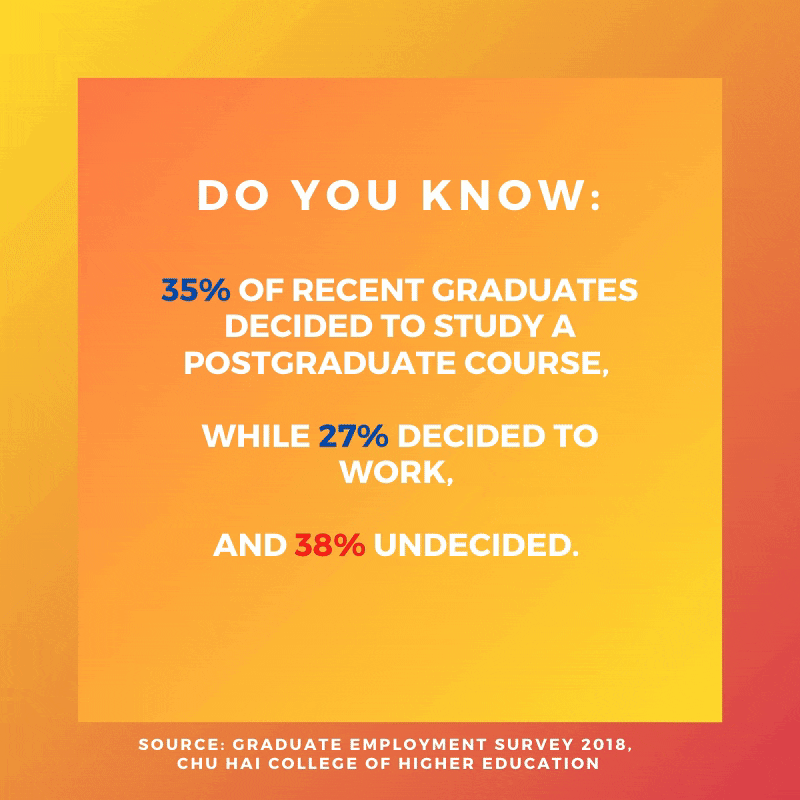To work or to study further
Studying a postgraduate course is a popular choice in recent years. Some students may consider studying a master’s degree, while others plan to study a postgraduate diploma. It is not a simple decision, there are several factors to consider.
Cost of study vs Wage Premiums
It depends on the financial needs of each student. The cost of study varies depending on the education bodies and the area of study. Some professions, such as Architecture, requires both postgraduate qualification and work experiences to register. While some professions such as accounting require one to pass several exams to become an Accountant.
Hands-on Experience vs Postgraduate Degree
For those who join the workforce after graduation, you gain more work experiences than those who continued their study. You are more likely to create a professional network at work, which these connections could be helpful in reaching your career goals. On the other hand, a postgraduate qualification opens doors for senior or professional positions. It is important that you carefully consider your current and long term needs when you make decisions.
The importance of Life-Long Learning
Whether work or study, it is important that you improve yourself continuously. Life-long Learning does not limit to learning in a formal institute, but to learn voluntarily with the purpose of achieving personal fulfillment.
Entrepreneurship, workspace, slash and contract employment mode are going to be very common employment modes and practices. Organizations are going to be flexible, short-term and impersonal in their outlook. So you need to look after your own personal and professional development, instead of relying on the organisation.
In addition, you need to develop both hard knowledge and soft skills to be able to move between jobs, teams, organisations and industries flexibly with ease. It’s going to be a “multi” environment.
Develop your core competencies, niche and identity as a person and professional, then you have a solid foundation and career anchor to build on.
Act now to build your career
Equip yourself with the proper knowledge and skills the sooner the better. It’s always better to be proactive. Here are the actions you need to start now.
- Do research about the industry, the organization, and the jobs
- Ask a person who is working in the industry for the latest development
- Set realistic reachable goals
- Improve your language proficiency
- Find meaningful summer job
- Make use of learning opportunities on campus
- Join career guidance programmes on interview, CV writing and etiquette
- Develop your transferrable skills
- Find a mentor
- Have a tentative career development and personal development plan in mind


